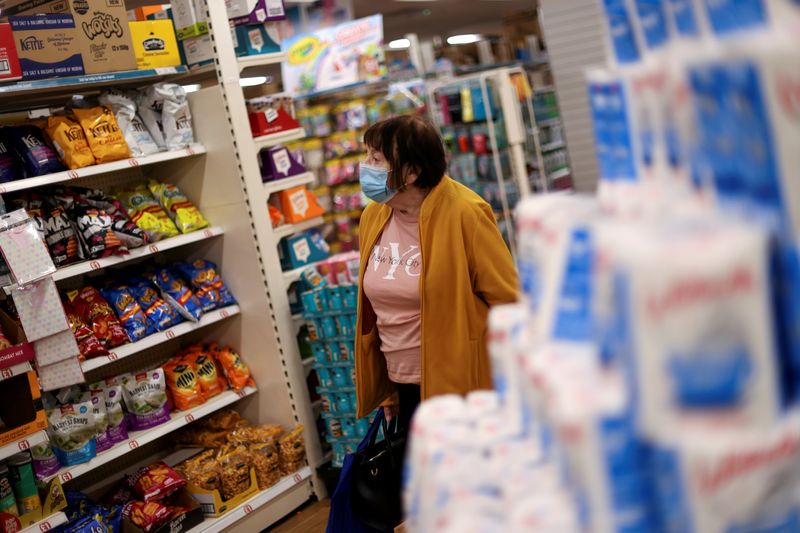By Andy Bruce and William Schomberg
LONDON (Reuters) - A hefty drop in meal prices, spurred by Britain's scheme to support the hospitality sector through the COVID-19 pandemic, helped to push inflation down last month to its lowest rate in almost five years.
Consumer prices rose by 0.2% in annual terms in August, the smallest increase since December 2015 and a sharp slowdown from July's 1.0% increase, the Office for National Statistics (ONS) said on Wednesday.
A Reuters poll of economists had pointed to a reading of 0.0%.
Discounts for more than 100 million meals were claimed Last month through the government's "Eat Out to Help Out" programme, which offered diners a state-funded price reduction of up to 10 pounds ($12.89).
While this prompted an unusually large fall in the rate of inflation, the effect of the coronavirus pandemic on the economy and a coming surge in unemployment look likely to keep consumer prices in check.
Prices in restaurants and cafes were down 2.6% compared with August last year, their first fall since records began in 1989.
Falls in air fares and a smaller-than-usual rise in clothes prices also helped to push annual inflation down.
"While we expect an initial bounce-back in inflation in September, as the 'Eat Out to Help Out' scheme comes to an end, overall inflation is likely to remain well below the Bank of England's target for some time," said Yael Selfin, chief economist at KPMG.
The consumer price index has now been below the BoE's target for 13 months in a row.
Most economists polled by Reuters think sharply rising unemployment and a slowing recovery will prompt the BoE to pump more stimulus into the economy before the end of this year.
The ONS said eight items in its inflation basket were still unavailable to its price collectors, reflecting things that remain off-limits such as tickets to the theatre, soccer matches and horse racing, and catering for more than 50 people.
In April, during the most stringent period of the lockdown, 90 items had been unavailable.
There were already signs that inflation pressure would remain weak.
Factory output prices fell for the fifth month in a row in annual terms - the longest such run in four years - as weaker oil prices pushed them down by 0.9%.
Excluding oil and other volatile components, core factory output prices showed no change in annual terms, their weakest showing in nearly five years.
